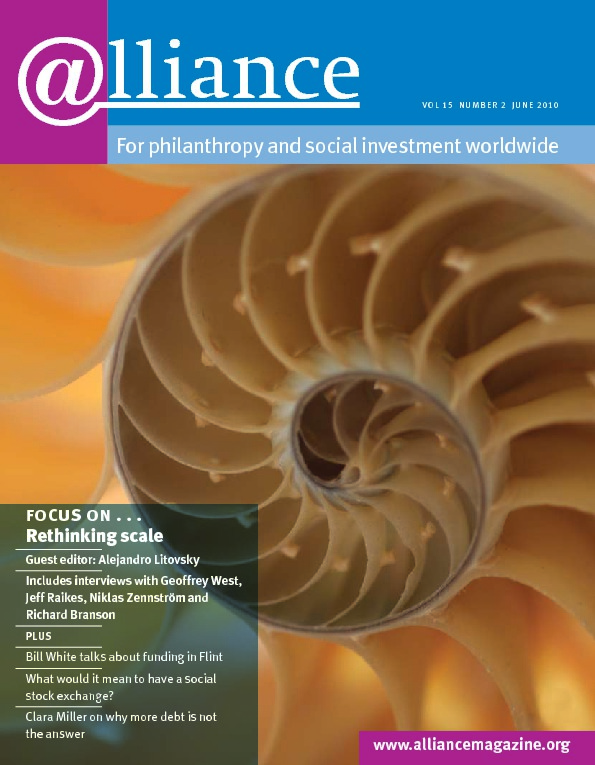GlobalGiving, the Rockefeller Foundation and InnoCentive have combined to launch the Global Giveback Innovation Challenge. This will give five non-profit organizations access to InnoCentive’s network of problem-solvers to help them to solve urgent problems to do with water in their communities. Through InnoCentive’s network, organizations or ‘seekers’ submit problems to a ‘solver’ community of more than 200,000 engineers, scientists, inventors, business professionals and research organizations around the world.
The technique of so-called crowdsourcing is involved at each stage of the GiveBack Innovation Challenge, as Antony Bugg-Levine, managing director of the Rockefeller Foundation’s Global Impact Investing Initiative, explained in an interview with Philanthropy News Digest. Broadly speaking, it works like this: GlobalGiving asked its 800 project leaders in 80 countries for ideas about potential challenges, out of which it selected five. Innocentive then posts those challenges for three months and invites its network of experts to crowdsource solutions. The Rockefeller Foundation will give the winners cash rewards of up to $40,000. Once winners are selected, GlobalGiving will again use crowdsourcing to raise funds to implement the winning solutions. The challenges identified for the Challenge involve finding ways to purify or sterilize drinking water, harvesting rainwater in storage tanks, and developing a small-scale river turbine to generate electricity.
According to Bugg-Levine, the system works. The Challenge is the second time that Rockefeller has partnered with InnoCentive. The first was in 2006, when Rockefeller supported ten challenges on the InnoCentive platform and achieved an 80 per cent success rate in finding solutions. ‘There is an unprecedented opportunity,’ says Bugg-Levine, ‘to capture … untapped creativity on a global basis. That’s why the Rockefeller Foundation has invested in our Advancing Innovation Processes to Solve Social Problems initiative to explore if and how new innovation approaches such as crowdsourcing can be applied in the development world.’
For more information
http://www.globalgiving.org/globalgiveback
http://www.rockefellerfoundation.org
http://www.innocentive.com



Comments (0)